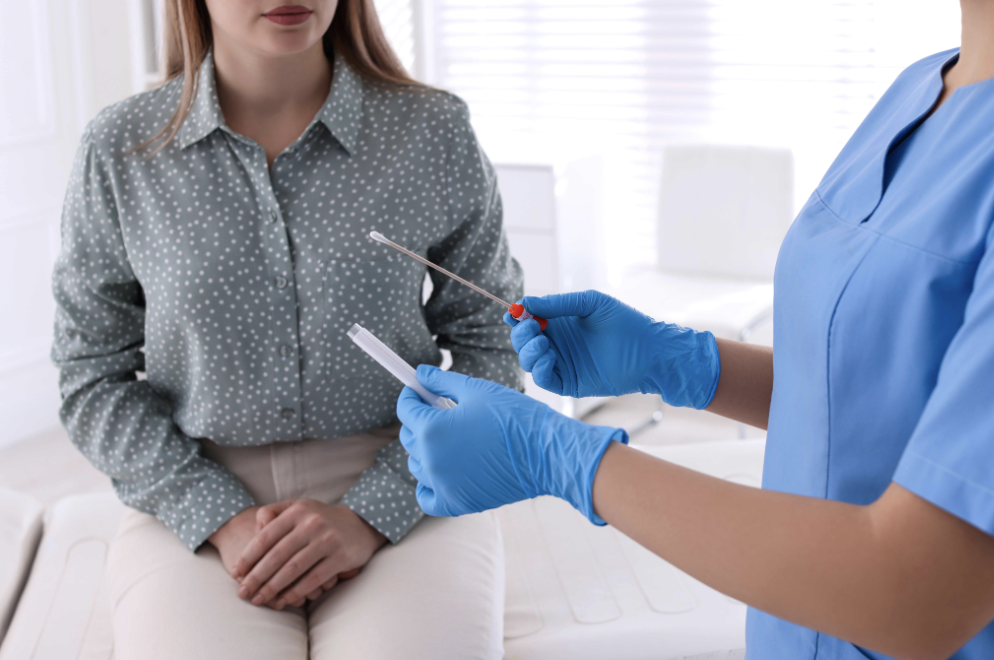Why HPV Screening Should Be Part Of Your Health Routine

HPV screening isn't exactly a fun topic, but it's one that deserves attention. Yes, talking about sexually transmitted infections can be uncomfortable. Many people feel nervous or embarrassed about getting tested. But here's the thing: regular HPV screening is crucial for protecting your health.
Most sexually active adults will get HPV at some point in their lives. While many of the HPV infections clear up on their own, some can lead to serious health issues, including several types of cancer. With regular HPV screening, you can take control of your health and catch issues early when they're most treatable. This article will dive into why HPV screening should be part of your health routine. Whether you're young or old, male or female, this information matters. Because when it comes to your health, knowledge truly is power.
Understanding HPV
Human Papilloma Virus, or HPV, is a group of viruses that can affect both men and women. It's so common that nearly everyone will encounter it at some point in their lives. Think of it like catching a cold, but for your intimate areas.
There are over 100 HPV types, but don't worry – most of them are harmless. Some cause warts while others can lead to more serious health issues.
The tricky part? HPV often has no symptoms, so you might not even know you have it. The virus spreads through skin-to-skin contact, usually during sexual activity. This includes vaginal, anal, and oral sex. Even if you're not having full-on intercourse, you can still catch it.
Some types of HPV can cause cervical cancer in women. That's why HPV screening Singapore and around the world is so important. But it's not just about cervical cancer. HPV can also lead to other cancers, including throat, anal, and penile cancer. For men, it might seem less urgent, but they can still carry and spread the virus.
The Importance of HPV Screening
Here are the key reasons why making HPV screening a part of your health routine is so crucial:
Early detection
Early detection through HPV screening spots potential issues long before you might notice any symptoms. This early warning gives you and your doctor a huge advantage. Instead of reacting to a problem that's already developed, you can take action to prevent it from becoming serious in the first place.
Prevention of cancer
By detecting HPV high-risk strains and abnormal cell changes early, screening allows for prompt intervention before cancer can develop. This preventive approach has had a remarkable impact. Since the introduction of regular HPV screening, mortality from cervical cancer have plummeted in many countries. For instance, in the U.S., cervical cancer related deaths have declined by 75% since the 1960s.
Peace of mind
Health worries can keep you up at night. That nagging thought in the back of your mind asking, "What if?" It's like having a pebble in your shoe - small, but constantly there. This is where HPV screening shines, offering a sense of relief that's hard to put a price on. Knowing your HPV status reduces anxiety and stress and helps you make informed health decisions.
Protects partners
When you get screened for HPV, you're not just looking out for yourself - you're also protecting your partner. It's a simple step that shows you care not just about your own health, but about the wellbeing of those close to you.
Guides treatment
If HPV is found, your doctor can monitor or treat it effectively. it helps plot the best course forward.
Cost-effective
Catching and treating HPV-related issues early is far cheaper than dealing with advanced diseases. Regular screenings might seem like a bother, but they're a small price to pay for potentially avoiding major health crises.
Saves lives
Regular screening has dramatically reduced cervical cancer rates. It's a true lifesaver. Countless lives have been spared or extended because of this simple test. It's about preserving quality of life, allowing people to stay healthy for their families, careers, and dreams.
How HPV Screening Works
The two most common screening methods are:
HPV primary screening
This test looks directly for the presence of high-risk HPV DNA in cervical cells. It’s typically recommended for women over 30 and can be done alone or alongside a Pap test to improve early detection of cervical abnormalities.
While HPV screening is essential for cervical health, it’s also important to be aware of other preventive options like Post-Exposure Prophylaxis or PEP for HIV. It is a treatment taken within 72 hours after possible exposure to HIV to prevent infection. It’s a key part of sexual health management, especially after high-risk encounters, and complements the broader conversation on proactive screening and prevention.
Co-testing (HPV Test and Pap Test)
This involves both the HPV test to detect high-risk HPV and the Pap test (or Pap smear) to check for abnormal cervical cells. Co-testing is often recommended for women between 25 and 65.
The actual collection process for both tests is similar. During a pelvic exam, a healthcare provider will use a speculum to open the vagina and collect a sample of cells from the cervix using a small brush or swab. This sample is then sent to a lab for analysis.
It's important to note
-
- HPV screening is not a test for cervical cancer itself but rather a tool to identify those at higher risk.
- A negative HPV test result may lead to further testing. If further testing like a colposcopy or biopsy is needed to check for precancerous or cancerous cells, it’s also worth knowing about the potential biopsy or colposcopy cost.
- HPV screening guidelines may vary depending on age, medical history, and other individual factors. It's crucial to discuss with your healthcare provider the most appropriate screening schedule for you.
Regular HPV testing is a vital part of preventive healthcare, as early detection and treatment of HPV-related abnormalities can significantly improve cervical cancer prevention.
Final Thoughts
Empower yourself with knowledge and take charge of your cervical health. It's time to schedule your HPV screening and embrace a future of confidence and well-being.






